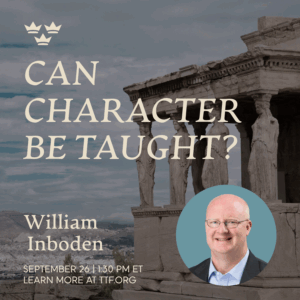Character, Virtue, & Leadership with Michael Lamb
February 17, 2023
Overview
Speakers
-
 MICHAEL LAMB
MICHAEL LAMB -
 CHERIE HARDER
CHERIE HARDER
SHARE

